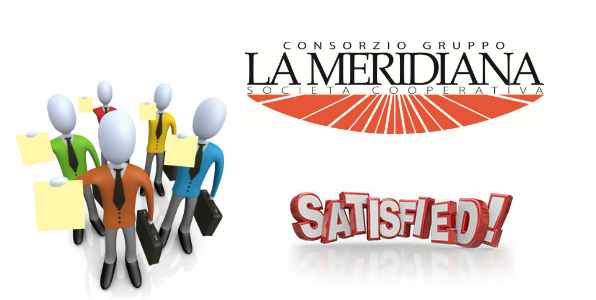The evolution of outsourcing tools in Italy and Europe

In order to understand the value of the services offered by La Meridiana Group and the power of outsourcing as a business tool, it may be useful to recall its history and evolution in Italy and in Europe alongside the reasons that led it to be one of the most common strategies today. Although the origins of outsourcing are not recent, the real phenomenon has developed considerably only since the Second World War and especially in the nineties. The first companies to embrace outsourcing on a large scale were Japanese, particularly large “keiretsu”, groups of companies that operated in different areas and were characterized by cross-shareholdings and relational networks between organization groups.
This type of organization requires the creation of two-way relationships between companies and suppliers. For the Anglo-Saxon area, in particular in the US outsourcing grew especially after the economic crisis during the eighties when the giants of the automotive industry grew considerably and decided to solve the problem of fiscal accounting right through the outsourcing tool.
The principle behind Outsourcing it is simple and logical:“make people do what they do the best” in order to reduce costs and improve the quality of services, while maximizing the availability of core resources necessary to the business development of the company.
In the Italian chapter the phenomenon has grown in large scale in the sixties, mostly because of the substantial gap in labor costs between small and large companies. In recent times, however, a new wave of decentralization sparked due to a large increase in number of competitors and range of services available on the market.
The purpose of outsourcing is to transfer the ownership and management of a business process to an external supplier. The main characteristics of outsourcing can thus be summarized as follows:
- the Outsourcer owns the responsibility for the achieved results
- the relationship with the Supplier is characterized as a partnership
- the contract is typically long-term
There are field areas where outsourcing is largely deployed and where its key principles are successfully proven – those include information technology, finance and administration, human resources management, call center, logistics and warehouse management, purchasing and facility management.
Facility management is the science company that controls all activities that do not relate to the core business: office productivity, utilities, security, telecommunications, canteen service, maintenance, and more fall into this category.
There is increasing pressure on large companies to disinvest service centers, migrating internal resources to external suppliers by monetizing their assets and often yielding improved service levels. In Italy the use of outsourcing is growing in both the public and the private sector.
One of the most important decisions Outsourcing is the identification of activities in the value chain to be outsourced or otherwise of tangible products (components, sub-assemblies, systems, finished products) can be purchased from external suppliers.
Every company can be broken down into three types of processes, taking of its purpose:
- customer relationship based processes, whose main task is the acquisition, retention and customer loyalty. They are characterized by high cost of customer acquisition and economies of scope;
- product innovation based processes, focused on the development of innovative goods and services. In this case, there are high costs of innovation and economies of speed and knowledge;
- infrastructure management based processes, dedicated to the management, sometimes even to the design and implementation of operating systems of the company; and characterized by high investment in fixed costs and economies of scale.
These processes are made up of activities and operations very different and require different skills and expertise to be able to be managed. Therefore, it might be difficult to get them to co-exist within the same enterprise, especially in hyper competitive environments, where high performance is required.
If the discriminant is made from a position of strategic importance, the activities can be divided into four main types:
- core activity,higher value strategic activities, which represent the core competencies of the company required for the acquisition, retention and development of competitive advantage;
- core related activity,complementary to those strategic and, therefore, difficulty to separate;
- distinct core activity,support activities for processes characteristic of production or value to the core business, without direct relationships with complementary strategic activities (for example, logistics );
- generic activities,not related to the processes characteristic of production value or the core business (such as catering, cleaning and security).
In the management literature, the activities that are usually considered the subject of outsourcing are supporting activities (core distinct activity) and the generic ones.
The outsourcing of core activities related could, in fact, result in phenomena of spillover (dispersion of knowledge and competencies).
With regard to outsourcing in Italy, The Consortium Group The Meridiana is an active and effective scene that works throughout the country and offers a wide range of services dedicated to its partners with the aim of satisfying the customer without compromising on quality or sacrificing revenue. For more information please contact our experts can recommend the best solution to your business problems or simply help you to increase it intelligently.



Share Your Thoughts!